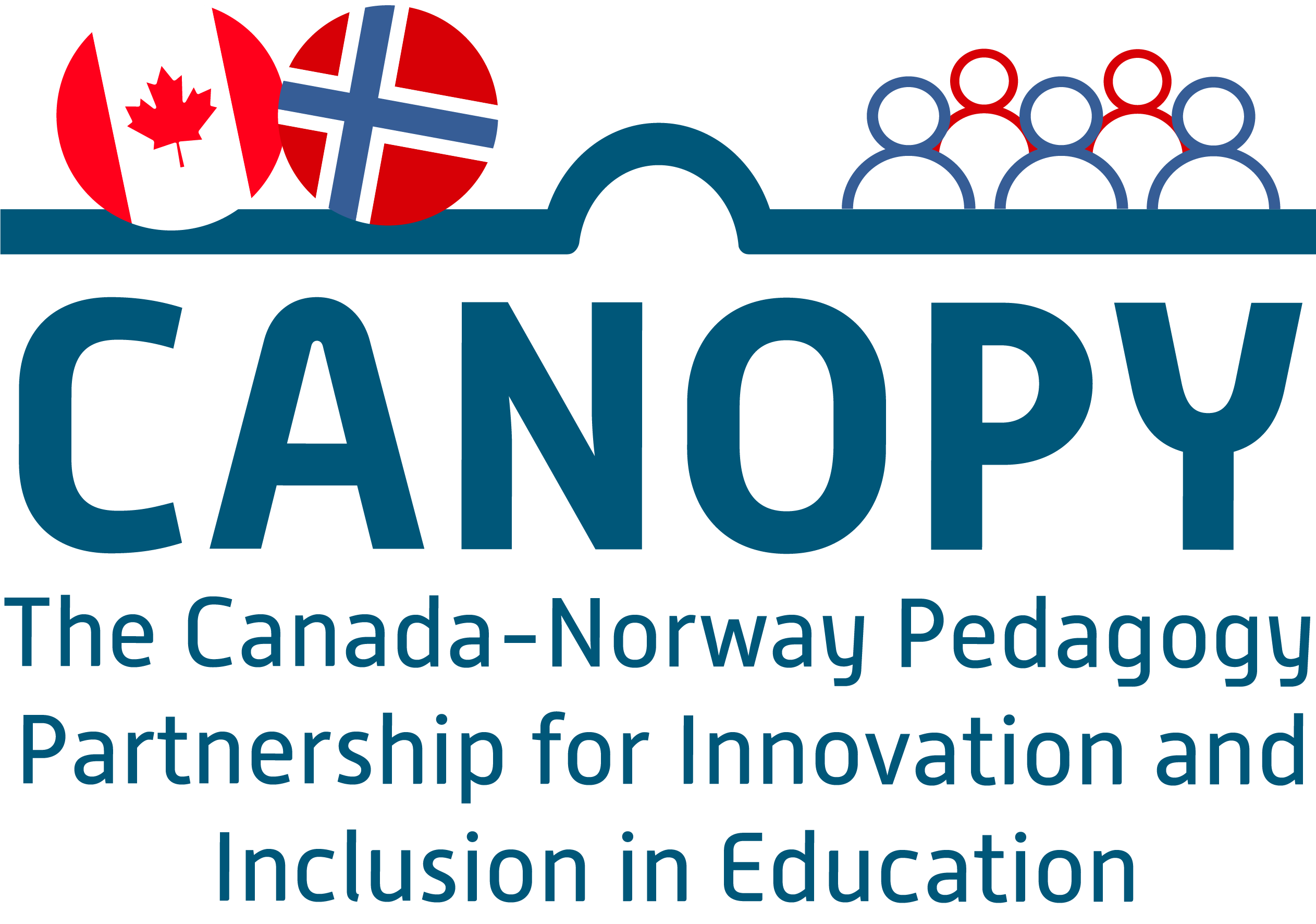Partner Group B: Digital Innovation & Educational Technology
CLAIRE AHN
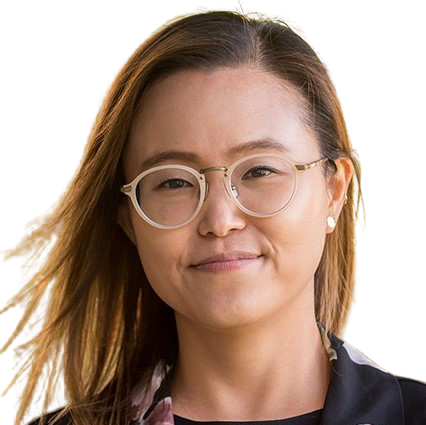
Dr. Claire Ahn is an Assistant Professor of Multiliteracies and is interested in how (visual) information is mediated across different platforms and how this affects people’s understanding of issues, events, and of people. Her current research projects include: exploring the impacts of deceptive media (e.g., fake news) and the importance of critical digital literacy education; investigating how youth are understanding and learning about critical social justice issues via digital platforms; and multiliteracy approaches to teaching and learning about place-based poetry using a digital application, PhoneMe. More information about Dr. Ahn’s projects and publications can be found on her faculty profile page. Broadly speaking, her research interests also include: multimodality, visual literacy, visual rhetoric, genre and rhetorical genre studies, English Language Arts curriculum. Dr. Ahn also has over 20 years of teaching experience, including a decade of experience as a secondary English Language Arts (ELA) teacher, thus her research is strongly rooted in and considers secondary ELA curricula and pedagogical implications. As such, in relation to technology, Dr. Ahn is also interested in issues related to equity and accessibility, how educators implement technology to complement lessons and not simply as a means to an end, and how youth take up and engage with technology in formal and informal learning spaces.
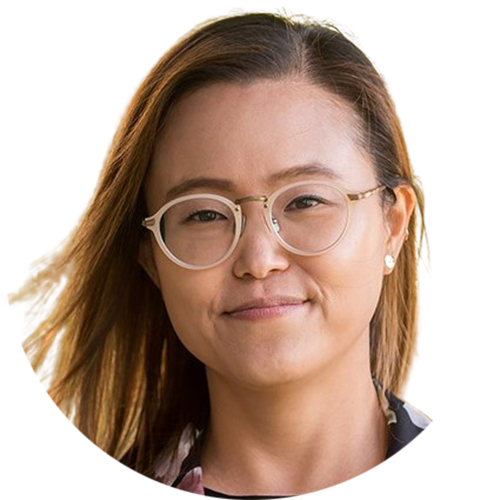
CLAIRE AHN

Dr. Claire Ahn is an Assistant Professor of Multiliteracies and is interested in how (visual) information is mediated across different platforms and how this affects people’s understanding of issues, events, and of people. Her current research projects include: exploring the impacts of deceptive media (e.g., fake news) and the importance of critical digital literacy education; investigating how youth are understanding and learning about critical social justice issues via digital platforms; and multiliteracy approaches to teaching and learning about place-based poetry using a digital application, PhoneMe. More information about Dr. Ahn’s projects and publications can be found on her faculty profile page. Broadly speaking, her research interests also include: multimodality, visual literacy, visual rhetoric, genre and rhetorical genre studies, English Language Arts curriculum. Dr. Ahn also has over 20 years of teaching experience, including a decade of experience as a secondary English Language Arts (ELA) teacher, thus her research is strongly rooted in and considers secondary ELA curricula and pedagogical implications. As such, in relation to technology, Dr. Ahn is also interested in issues related to equity and accessibility, how educators implement technology to complement lessons and not simply as a means to an end, and how youth take up and engage with technology in formal and informal learning spaces.
PAUL ALLISON
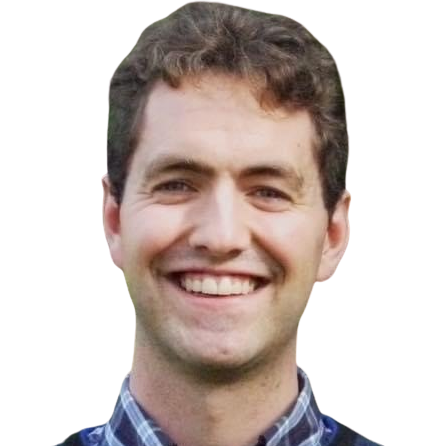
Paul Allison is an elementary core French teacher with the Limestone District School Board and a Computer Science Term Adjunct Lecturer at the Queen’s University School of Computing. He holds a Bachelor of Computing (Honours), a Bachelor of Education, and a Master of Science in Computer Science, all awarded by Queen’s University.
Paul has a keen interest in finding ways to integrate technology into his French as a Second Language teaching and learning. He promotes student engagement and empowers students to innovate, through the use of various educational technologies including Minecraft, coding, virtual reality, game design, and augmented reality.
On many occasions, Paul has been invited to present at conferences and workshops to share ways in which educators can integrate digital technologies into their teaching. He is an advocate for the use of technology to empower students, allowing them to apply their learning in ways that positively impact and shape the communities in which they live.
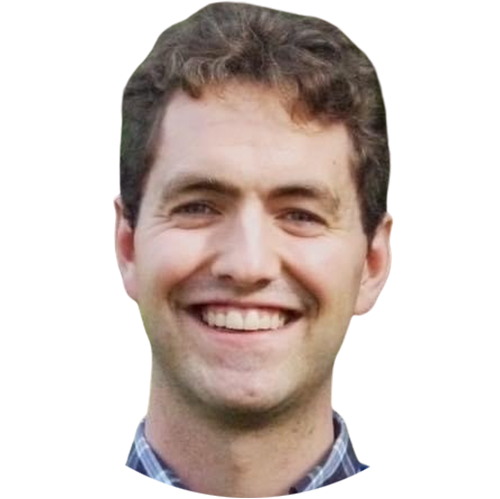
PAUL ALLISON

Paul Allison is an elementary core French teacher with the Limestone District School Board and a Computer Science Term Adjunct Lecturer at the Queen’s University School of Computing. He holds a Bachelor of Computing (Honours), a Bachelor of Education, and a Master of Science in Computer Science, all awarded by Queen’s University.
Paul has a keen interest in finding ways to integrate technology into his French as a Second Language teaching and learning. He promotes student engagement and empowers students to innovate, through the use of various educational technologies including Minecraft, coding, virtual reality, game design, and augmented reality.
On many occasions, Paul has been invited to present at conferences and workshops to share ways in which educators can integrate digital technologies into their teaching. He is an advocate for the use of technology to empower students, allowing them to apply their learning in ways that positively impact and shape the communities in which they live.
STEFAN BJØRNEVIK
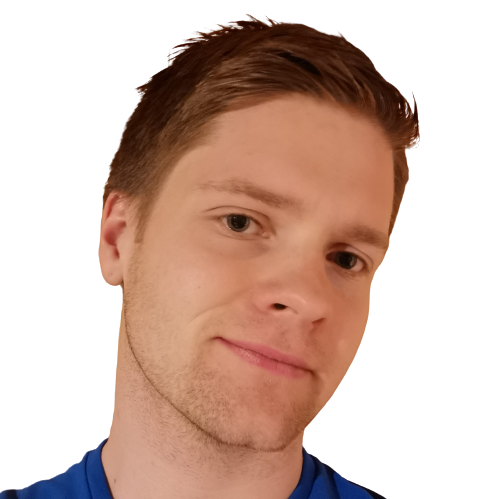
Stefan Bjørnevik is in the fourth year of his MAGLU studies at Nord University, specializing in mathematics. He is from a small village called Laukvik in the Lofoten Islands, where he has worked with the Laukvik Kindergarten and the Vågan Joint Church Council. He has also served as a member of the Red Cross through which he has participated in several first aid rescue missions.
Stefan has a special interest in digitalization and educational technology. In mathematics, he has experience with block-based programming, such as micro:bit, scratch, and sphero:bolt. Recently he undertook a major research project focused on spatial ability in digital tasks with fourth-grade pupils. He also enjoys engaging students with digital activities and innovative apps and is committed to developing methods for teaching programming at school.

STEFAN BJØRNEVIK

Stefan Bjørnevik is in the fourth year of his MAGLU studies at Nord University, specializing in mathematics. He is from a small village called Laukvik in the Lofoten Islands, where he has worked with the Laukvik Kindergarten and the Vågan Joint Church Council. He has also served as a member of the Red Cross through which he has participated in several first aid rescue missions.
Stefan has a special interest in digitalization and educational technology. In mathematics, he has experience with block-based programming, such as micro:bit, scratch, and sphero:bolt. Recently he undertook a major research project focused on spatial ability in digital tasks with fourth-grade pupils. He also enjoys engaging students with digital activities and innovative apps and is committed to developing methods for teaching programming at school.
VIKTOR BÅSSA
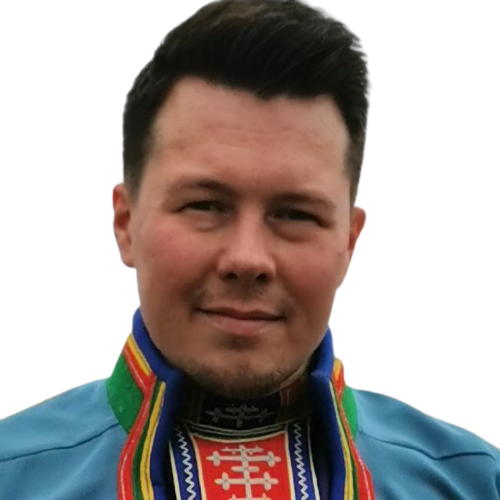
Viktor Båssa is a fourth-year student in the Lule Sámi Primary Teacher Education Programme at Nord University, specializing in Lule Sámi and special education. He is pursuing this particular vocation to help revitalize and preserve Lule Sámi, which is a severely endangered language on UNESCO's list of endangered languages. He learned Lule Sámi as an adult, which was a difficult process since there are limited educational materials and few teachers for this language.
Viktor attended high school in Kautokeino, a small village in Northern Norway where about 90% of the population speaks Northern Sámi as their mother tongue. For these three years, he received Lule Sámi language teaching -- half of the time via distance learning. This experience, which posed several challenges due to inadequate equipment, learning platforms, and materials, inspired him to pursue better methods for digital/remote language instruction.
Viktor was a member of the Sámi Parliament in Norway between 2013 and 2017, serving on the Committee for Education. He has continued his commitment to the Sámi community by training to be a Lule Sámi teacher. Prior to pursuing Teacher Education at Nord University, he enrolled in a one-year Psychology program at the University of Tromsø, with an interest in exploring suicide rates among young Sami men -- which are higher than the rest of the population in Norway.
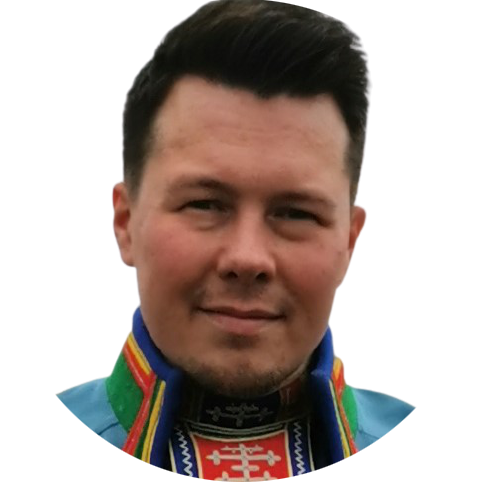
VIKTOR BÅSSA

Viktor Båssa is a fourth-year student in the Lule Sámi Primary Teacher Education Programme at Nord University, specializing in Lule Sámi and special education. He is pursuing this particular vocation to help revitalize and preserve Lule Sámi, which is a severely endangered language on UNESCO's list of endangered languages. He learned Lule Sámi as an adult, which was a difficult process since there are limited educational materials and few teachers for this language.
Viktor attended high school in Kautokeino, a small village in Northern Norway where about 90% of the population speaks Northern Sámi as their mother tongue. For these three years, he received Lule Sámi language teaching -- half of the time via distance learning. This experience, which posed several challenges due to inadequate equipment, learning platforms, and materials, inspired him to pursue better methods for digital/remote language instruction.
Viktor was a member of the Sámi Parliament in Norway between 2013 and 2017, serving on the Committee for Education. He has continued his commitment to the Sámi community by training to be a Lule Sámi teacher. Prior to pursuing Teacher Education at Nord University, he enrolled in a one-year Psychology program at the University of Tromsø, with an interest in exploring suicide rates among young Sami men -- which are higher than the rest of the population in Norway.
THEODORE CHRISTOU
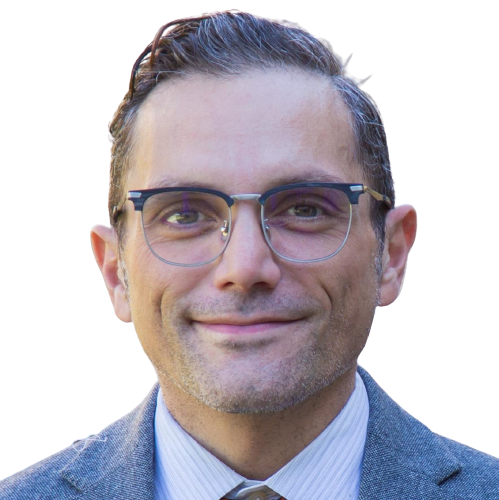
Dr. Theodore Christou is a Professor of Social Studies and History Education at Queen’s University as well as the Associate Dean of Graduate Studies in the Faculty of Education. Theodore is a poet, historian, and philosopher of education. As an interdisciplinary education scholar, Dr. Christou has edited journals including the Canadian Journal of Education and Antistasis, while publishing more than ten academic books, ranging from international handbooks of history to school textbooks used across the province of Ontario. His academic and professional work is rooted in a belief in education’s transformational potential and in the articulation of philosophy as a purposeful way of living in the world. Dr. Christou is a member of the Ontario College of Teachers and a Registered Early Childhood Educator. Along with his years of academic service at Queen’s University and at the University of New Brunswick, Dr. Christou has lectured and taught internationally, supporting Greek language education in particular.
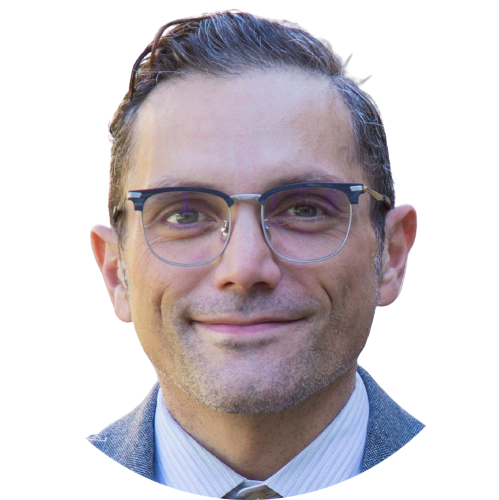
THEODORE CHRISTOU

Dr. Theodore Christou is a Professor of Social Studies and History Education at Queen’s University as well as the Associate Dean of Graduate Studies in the Faculty of Education. Theodore is a poet, historian, and philosopher of education. As an interdisciplinary education scholar, Dr. Christou has edited journals including the Canadian Journal of Education and Antistasis, while publishing more than ten academic books, ranging from international handbooks of history to school textbooks used across the province of Ontario. His academic and professional work is rooted in a belief in education’s transformational potential and in the articulation of philosophy as a purposeful way of living in the world. Dr. Christou is a member of the Ontario College of Teachers and a Registered Early Childhood Educator. Along with his years of academic service at Queen’s University and at the University of New Brunswick, Dr. Christou has lectured and taught internationally, supporting Greek language education in particular.
KATRINE LEKANG EITERJORD
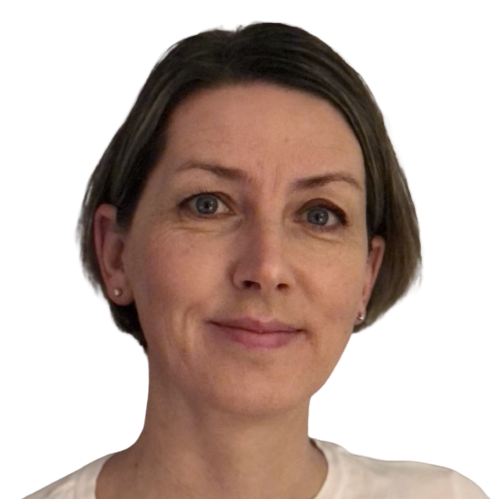
Katrine Lekang Eiterjord has worked at Bankgata Middle School (grades 8-10) in Bodø since 2009, but she started her career as a teacher in Kolbotn in 2007. She mainly teaches English, Social Studies and German, and is currently one of the head teachers for the ninth-grade class. She also serves as a team leader (part of the school’s “plangruppe”), which acts as a link between the school’s administration and the ninth-grade teachers concerning the school’s pedagogical activities. During Katrine’s years as a teacher, she has studied guidance pedagogy for teachers, and has been a practicum supervisor for several groups of teacher education students.
One of Katrine’s guiding principles when teaching, is educational leadership. She believes it is important to balance expertise and humour, and to always reflect on how teachers can contribute to an optimal learning environment for students.
Over the last decade, digital innovation and educational technology has been a priority for Bankgata Middle School. All students now have their own tablet computers, which allows them the possibility of enhancing their learning process. Additionally, the use of websites and apps enriches collaborative learning and is important when teaching digital literacy. Katrine and her fellow teachers continuously evaluate digital learning materials, apps, and programs for classroom use, and she continues to be fascinated by developments and discoveries in the world of educational technology.
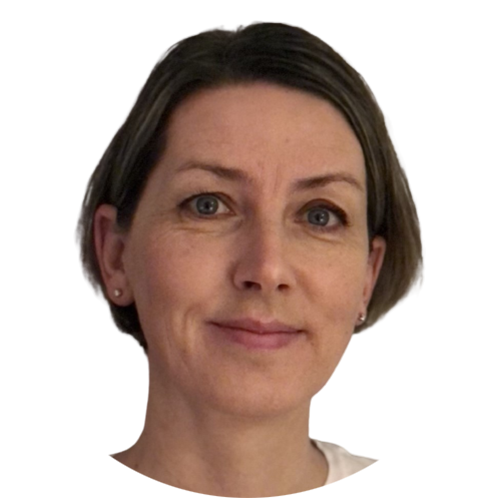
KATRINE LEKANG EITERJORD

Katrine Lekang Eiterjord has worked at Bankgata Middle School (grades 8-10) in Bodø since 2009, but she started her career as a teacher in Kolbotn in 2007. She mainly teaches English, Social Studies and German, and is currently one of the head teachers for the ninth-grade class. She also serves as a team leader (part of the school’s “plangruppe”), which acts as a link between the school’s administration and the ninth-grade teachers concerning the school’s pedagogical activities. During Katrine’s years as a teacher, she has studied guidance pedagogy for teachers, and has been a practicum supervisor for several groups of teacher education students.
One of Katrine’s guiding principles when teaching, is educational leadership. She believes it is important to balance expertise and humour, and to always reflect on how teachers can contribute to an optimal learning environment for students.
Over the last decade, digital innovation and educational technology has been a priority for Bankgata Middle School. All students now have their own tablet computers, which allows them the possibility of enhancing their learning process. Additionally, the use of websites and apps enriches collaborative learning and is important when teaching digital literacy. Katrine and her fellow teachers continuously evaluate digital learning materials, apps, and programs for classroom use, and she continues to be fascinated by developments and discoveries in the world of educational technology.
JANELLE LEE
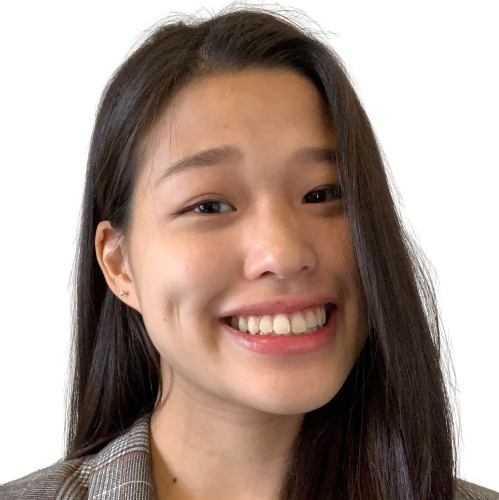
Janelle Lee (she/her) is a third-year Concurrent Education student at Queen's University specializing in Biology and Mathematics and is planning on teaching intermediate-senior mathematics and French. Throughout her undergraduate career, Janelle has been highly involved in the community, including volunteering as a "Big Buddy" through Kaleidoscope to support an at-risk elementary school student, facilitating conversation with ESL students through the Conversation Partner Program at the Queen's School of English, and participating in the CESA Equity Outreach Committee. She has been an active member of the Society for Conservation Biology (Kingston Chapter) throughout the years as a general member, Education Co-Lead, and currently as the Chapter Co-President, where she leads initiatives on campus and in the Kingston community that promote conservation biology and sustainability. She has also helped first-year students as an undergraduate teaching assistant at the Math Help Centre.
In August 2020, she joined the Student Educational Technology Assistant Team at the Queen's Centre for Teaching and Learning (CTL), where she helped professors as they shifted to remote teaching and assisted them in building their courses on D2L. Her work with the CTL and the Department of Arts and Science Online gave her the opportunity to learn about different education models and strategies of implementing the UDL in remote courses. Moreover, her experience as a private virtual French teacher and tutor in Ryerson Diversity Institute's Study Buddy program inspired her to want to make a difference in our educational landscape with digital innovations and evidence-based strategies rooted in EDII.
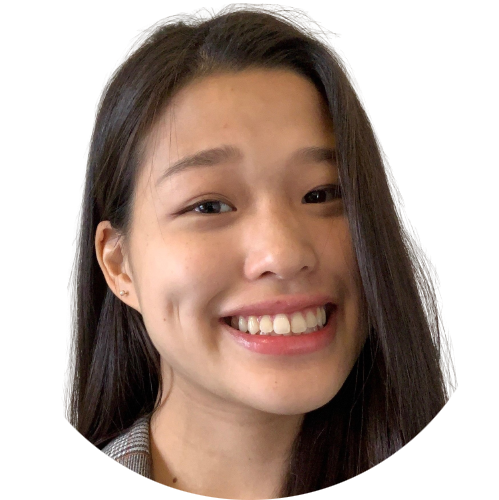
JANELLE LEE

Janelle Lee (she/her) is a third-year Concurrent Education student at Queen's University specializing in Biology and Mathematics and is planning on teaching intermediate-senior mathematics and French. Throughout her undergraduate career, Janelle has been highly involved in the community, including volunteering as a "Big Buddy" through Kaleidoscope to support an at-risk elementary school student, facilitating conversation with ESL students through the Conversation Partner Program at the Queen's School of English, and participating in the CESA Equity Outreach Committee. She has been an active member of the Society for Conservation Biology (Kingston Chapter) throughout the years as a general member, Education Co-Lead, and currently as the Chapter Co-President, where she leads initiatives on campus and in the Kingston community that promote conservation biology and sustainability. She has also helped first-year students as an undergraduate teaching assistant at the Math Help Centre.
In August 2020, she joined the Student Educational Technology Assistant Team at the Queen's Centre for Teaching and Learning (CTL), where she helped professors as they shifted to remote teaching and assisted them in building their courses on D2L. Her work with the CTL and the Department of Arts and Science Online gave her the opportunity to learn about different education models and strategies of implementing the UDL in remote courses. Moreover, her experience as a private virtual French teacher and tutor in Ryerson Diversity Institute's Study Buddy program inspired her to want to make a difference in our educational landscape with digital innovations and evidence-based strategies rooted in EDII.
TROND LEKANG
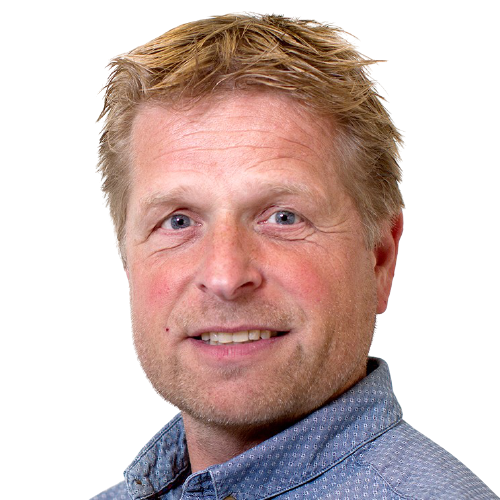
Trond Lekang is Professor of Pedagogy at Nord University, where he specializes in school management and digitalization, ICT competencies, and education for principals, supervisors, and advisors. He has previously served as the Head of Division for Speech Therapy, Adaptive Learning, and Special Education in the Faculty of Education and Arts at Nord and as Professor 2 in the Special Education program at UiT – The Arctic University of Norway. Trond has led several research groups, including the Learning Environment and Technology Group, the Adaptive Learning Group, and the Online Learning Group. He is also currently participating in the Rødøy Project for Distance Learning and is contributing to a national project evaluating school leadership education in Norway. He has recently edited two anthologies – Tilpasset opplæring og tidlig innsats (2020) and Teknologi og læringsmiljø (2019). Before joining the university in 2007, Trond worked as a primary and lower secondary school teacher in Bodø.

TROND LEKANG

Trond Lekang is Professor of Pedagogy at Nord University, where he specializes in school management and digitalization, ICT competencies, and education for principals, supervisors, and advisors. He has previously served as the Head of Division for Speech Therapy, Adaptive Learning, and Special Education in the Faculty of Education and Arts at Nord and as Professor 2 in the Special Education program at UiT – The Arctic University of Norway. Trond has led several research groups, including the Learning Environment and Technology Group, the Adaptive Learning Group, and the Online Learning Group. He is also currently participating in the Rødøy Project for Distance Learning and is contributing to a national project evaluating school leadership education in Norway. He has recently edited two anthologies – Tilpasset opplæring og tidlig innsats (2020) and Teknologi og læringsmiljø (2019). Before joining the university in 2007, Trond worked as a primary and lower secondary school teacher in Bodø.
NATE MALHIS

Nate (Layth) Malhis is a third-year Concurrent Education student at Queen’s University, specializing in History and FNMI Curricula. After completing his practicums in the English Developing Learners program his focus has been on attaining strategies to bridge the divide in classrooms with diverse literacy backgrounds. Since 2018 Nate has spent his summers working at a YMCA overnight camp where he became a leader in the community advocating for an inclusive space that nurtures all participants and allows them to grow barrier-free. In 2021, Nate had the pleasure of teaching a handful of Syrian newcomer students. Through this experience, Nate was able to see how technology (when accessible) could play a critical role in developing learners regardless of skill level. As a Palestinian immigrant, Nate understands the barriers created by inequality in marginalized communities. He advocates for equal distribution of innovative technology and hopes that the rampant technologization of the classroom could spell for an introduction of culturally responsive pedagogies that invite students to better understand Canada’s Indigenous population and its historically marginalized communities.

NATE MALHIS

Nate (Layth) Malhis is a third-year Concurrent Education student at Queen’s University, specializing in History and FNMI Curricula. After completing his practicums in the English Developing Learners program his focus has been on attaining strategies to bridge the divide in classrooms with diverse literacy backgrounds. Since 2018 Nate has spent his summers working at a YMCA overnight camp where he became a leader in the community advocating for an inclusive space that nurtures all participants and allows them to grow barrier-free. In 2021, Nate had the pleasure of teaching a handful of Syrian newcomer students. Through this experience, Nate was able to see how technology (when accessible) could play a critical role in developing learners regardless of skill level. As a Palestinian immigrant, Nate understands the barriers created by inequality in marginalized communities. He advocates for equal distribution of innovative technology and hopes that the rampant technologization of the classroom could spell for an introduction of culturally responsive pedagogies that invite students to better understand Canada’s Indigenous population and its historically marginalized communities.
SIGRID MARIA INGEBRIGTSEN OTTESEN
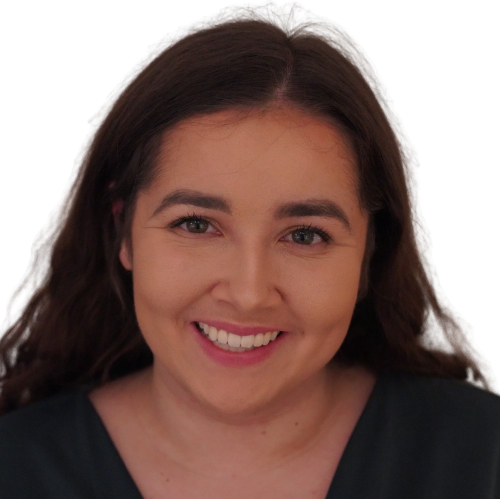
Sigrid Maria Ingebrigtsen Ottesen is a fourth-year MAGLU student, specializing in special education, mathematics, English, and social studies. She also hopes to pursue further training in religion to become a teacher in this subject. She is especially interested in classroom leadership, school-home cooperation, and the relationship between special education and the social and emotional needs of students. Sigrid has worked as a substitute teacher for the past year and a half and has served as the primary contact teacher for a class over the course of three months. Although she is currently studying to become a teacher for grades 5-10, she has experience working with 1st and 2nd grade pupils as a substitute teacher. Sigrid is also employed part-time working with persons with disabilities through home support visits. This experience has given her a distinct appreciation for how technology can assist with enrichment and can improve quality of life. Likewise, through her practicum and classroom time, she has seen firsthand how much technology can be used to both enrich and differentiate teaching.
After high school, Sigrid lived in the United States where she worked at Disney World as a cultural representative in the Norwegian pavilion of Epcot. She has also traveled extensively, having visited 30 countries, and over 25 states in the US. She hopes to bring this international, multicultural, and intercultural perspective to her teaching practice.
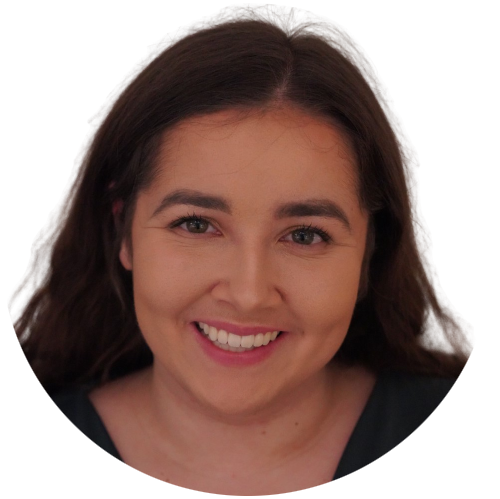
SIGRID MARIA INGEBRIGTSEN OTTESEN

Sigrid Maria Ingebrigtsen Ottesen is a fourth-year MAGLU student, specializing in special education, mathematics, English, and social studies. She also hopes to pursue further training in religion to become a teacher in this subject. She is especially interested in classroom leadership, school-home cooperation, and the relationship between special education and the social and emotional needs of students. Sigrid has worked as a substitute teacher for the past year and a half and has served as the primary contact teacher for a class over the course of three months. Although she is currently studying to become a teacher for grades 5-10, she has experience working with 1st and 2nd grade pupils as a substitute teacher. Sigrid is also employed part-time working with persons with disabilities through home support visits. This experience has given her a distinct appreciation for how technology can assist with enrichment and can improve quality of life. Likewise, through her practicum and classroom time, she has seen firsthand how much technology can be used to both enrich and differentiate teaching.
After high school, Sigrid lived in the United States where she worked at Disney World as a cultural representative in the Norwegian pavilion of Epcot. She has also traveled extensively, having visited 30 countries, and over 25 states in the US. She hopes to bring this international, multicultural, and intercultural perspective to her teaching practice.
LARS KIRKHUSMO PHARO
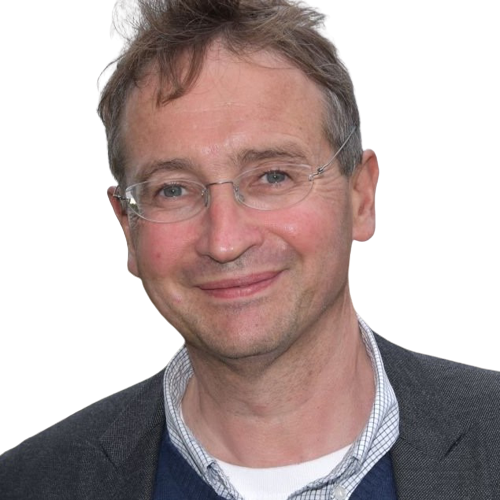
Lars Kirkhusmo Pharo is Vice-Dean of Research & Development and Professor of Religions & Ethics in the Faculty of Education and Arts at Nord University. He specializes in religion, ethics, the history of ideas (ideologies/philosophies), languages (translation and history of concepts), literacy, writing, semiotics, and knowledge systems of the American continent and Europe. He is also a Research Associate with the Moses Mesoamerican Archive and Research Project at Harvard University and a Research Partner at the Max-Planck Institut für Wissenschaftsgeschichte (MPIWG), Berlin. His most recent publications include the books Concepts of Conversion (De Gruyter, 2017) and The Ritual Practice of Time (Brill, 2013), among several other articles and book chapters.
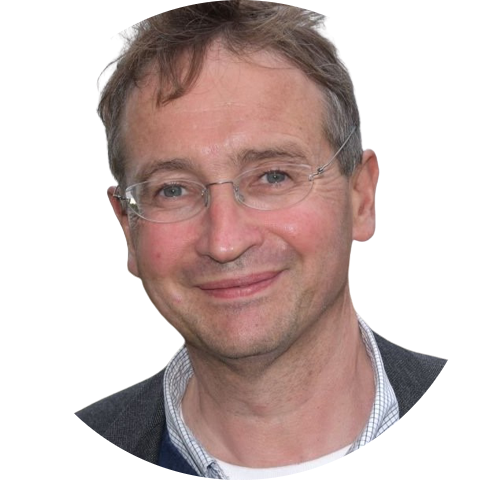
LARS KIRKHUSMO PHARO

Lars Kirkhusmo Pharo is Vice-Dean of Research & Development and Professor of Religions & Ethics in the Faculty of Education and Arts at Nord University. He specializes in religion, ethics, the history of ideas (ideologies/philosophies), languages (translation and history of concepts), literacy, writing, semiotics, and knowledge systems of the American continent and Europe. He is also a Research Associate with the Moses Mesoamerican Archive and Research Project at Harvard University and a Research Partner at the Max-Planck Institut für Wissenschaftsgeschichte (MPIWG), Berlin. His most recent publications include the books Concepts of Conversion (De Gruyter, 2017) and The Ritual Practice of Time (Brill, 2013), among several other articles and book chapters.
RICHARD REEVE
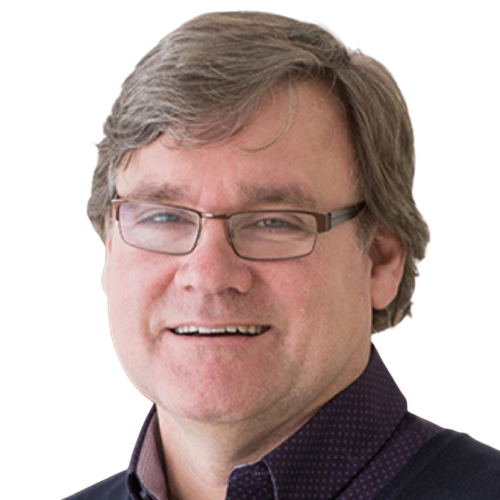
Dr. Richard Reeve (PhD, Toronto) is an Associate Professor of Educational Technology in Teaching and Learning in the Faculty of Education at Queen’s University. He holds Masters and Bachelor degrees in Education (Toronto & Queen’s) and a BAH in Psychology (Queen’s). Throughout his career Richard has worked at the intersection of research, practice and innovation in a range of educational settings. From 1999 to 2006, Richard was the Teacher/Researcher at the Institute of Child Study Laboratory School (Toronto) where he managed the social, ethical and educational concerns related to two SSHRC grants. Richard’s current work largely focuses on the design moves teachers make as they work to use educational technology with their students. Currently Richard works with teachers and their students to develop their classrooms into collaborative Knowledge Building Communities. This work extends around the world through the Knowledge Building International network of researchers, teachers and administrators for which Richard currently serves as the treasurer. His emerging research interests include developing technologies that support student access to engaging in Knowledge Building and in establishing new KBC’s on the continent of Africa. Richard’s research has been published in international journals including, The Journal of the Learning Sciences, Educational Technology Research & Development and Instructional Science. Richard has authored book chapters and co-edited with Dr. Vanessa Svihla the book Design as Scholarship: Case Studies from the Learning Sciences (2016). At the Faculty of Education, Richard developed a two-course concentration in Learning Educational Technology by Design(ing) whereby B.Ed. students develop design skills and learn about technology while simultaneously working to solve the teaching and learning problems of local educators. Current projects include working with a local school on the design of a new makerspace and with a national not-for-profit on a curriculum to support the learning of coding in early-years classrooms.
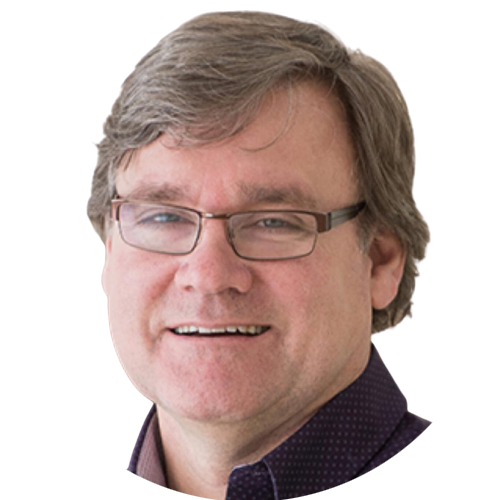
RICHARD REEVE

Dr. Richard Reeve (PhD, Toronto) is an Associate Professor of Educational Technology in Teaching and Learning in the Faculty of Education at Queen’s University. He holds Masters and Bachelor degrees in Education (Toronto & Queen’s) and a BAH in Psychology (Queen’s). Throughout his career Richard has worked at the intersection of research, practice and innovation in a range of educational settings. From 1999 to 2006, Richard was the Teacher/Researcher at the Institute of Child Study Laboratory School (Toronto) where he managed the social, ethical and educational concerns related to two SSHRC grants. Richard’s current work largely focuses on the design moves teachers make as they work to use educational technology with their students. Currently Richard works with teachers and their students to develop their classrooms into collaborative Knowledge Building Communities. This work extends around the world through the Knowledge Building International network of researchers, teachers and administrators for which Richard currently serves as the treasurer. His emerging research interests include developing technologies that support student access to engaging in Knowledge Building and in establishing new KBC’s on the continent of Africa. Richard’s research has been published in international journals including, The Journal of the Learning Sciences, Educational Technology Research & Development and Instructional Science. Richard has authored book chapters and co-edited with Dr. Vanessa Svihla the book Design as Scholarship: Case Studies from the Learning Sciences (2016). At the Faculty of Education, Richard developed a two-course concentration in Learning Educational Technology by Design(ing) whereby B.Ed. students develop design skills and learn about technology while simultaneously working to solve the teaching and learning problems of local educators. Current projects include working with a local school on the design of a new makerspace and with a national not-for-profit on a curriculum to support the learning of coding in early-years classrooms.
ELLEN MARIE SÆTHRE-MCGUIRK
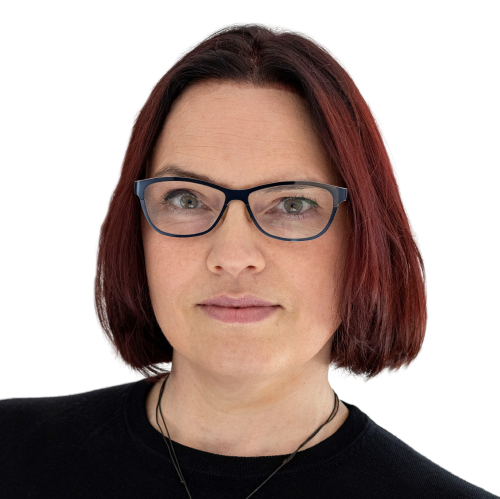
Dr. Prof. Ellen Marie Sæthre-McGuirk is Professor of Art and Design Education at Nord University, and is Head of Secretariat of the Norwegian Competency Network for Student Success in Higher Education. She has her PhD from the Katholieke Universiteit – Leuven (BE) in philosophical aesthetics and art history, having also completed an international research period at Harvard University (USA). She has her Master’s degree in European Studies, specializing in law and modern European cultural history, also from the K.U. Leuven. She is an active lecturer and program head of the on-line continuing education program Digital Art and Design Education. Dr. Prof. Sæthre-McGuirk has also designed a number of flexible and on-line higher education courses at all levels.
Dr. Prof. Sæthre-McGuirk has extensive experience in higher education, in addition to having been the Director of the Rogaland Museum of Fine Arts (NO) and Head of Research and Centre Leader of the Norwegian National Centre for Art and Culture in Education (NO). She has previously been Board Member, Vice-Chairman of the Board and Chairman of the Board at institutions such as the Nordic Institute of Contemporary Art (FI), Nordisk Art Centre Dalsåsen (NO), Voksenåsen Culture og Conference Hotel (the National Gift to Sweden) (SE/NO), and the Bodø Art Association (NO). She was recently voted in as Member of the Board at Nord University by the academic community. Dr. Prof. Sæthre-McGuirk is an active curator of art in public space, as well as having her own artistic research practice.
In many of these positions, Dr. Prof. Sæthre-McGuirk has served as a Project Manager for national, regional, and institutional initiatives. She is a specialist in quality assurance in higher education, having completed accreditation assessments of higher education programs and institutions for national agencies such as NOKUT in Norway and the SKVC in Lithuania. She has also been Committee Head assessing applications for the Directorate of Internationalisation and Quality Development in Higher Education’s national program for developing flexible and on-line higher education programs (in 2020 and 2021), in addition to have been an EU expert assessing applications for Horizon 2020 and the Erasmus+ programs.
Dr. Prof. Sæthre-McGuirk’s research interests include: art and design education; digitalization processes in higher education; digitalization processes in museums and cultural institutions; the implications of digital communities on youths; and leadership and strategic development in cultural and educational institutions.
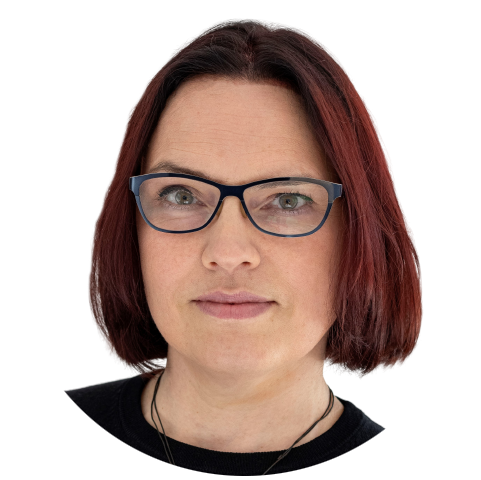
ELLEN MARIE SÆTHRE-MCGUIRK

Dr. Prof. Ellen Marie Sæthre-McGuirk is Professor of Art and Design Education at Nord University, and is Head of Secretariat of the Norwegian Competency Network for Student Success in Higher Education. She has her PhD from the Katholieke Universiteit – Leuven (BE) in philosophical aesthetics and art history, having also completed an international research period at Harvard University (USA). She has her Master’s degree in European Studies, specializing in law and modern European cultural history, also from the K.U. Leuven. She is an active lecturer and program head of the on-line continuing education program Digital Art and Design Education. Dr. Prof. Sæthre-McGuirk has also designed a number of flexible and on-line higher education courses at all levels.
Dr. Prof. Sæthre-McGuirk has extensive experience in higher education, in addition to having been the Director of the Rogaland Museum of Fine Arts (NO) and Head of Research and Centre Leader of the Norwegian National Centre for Art and Culture in Education (NO). She has previously been Board Member, Vice-Chairman of the Board and Chairman of the Board at institutions such as the Nordic Institute of Contemporary Art (FI), Nordisk Art Centre Dalsåsen (NO), Voksenåsen Culture og Conference Hotel (the National Gift to Sweden) (SE/NO), and the Bodø Art Association (NO). She was recently voted in as Member of the Board at Nord University by the academic community. Dr. Prof. Sæthre-McGuirk is an active curator of art in public space, as well as having her own artistic research practice.
In many of these positions, Dr. Prof. Sæthre-McGuirk has served as a Project Manager for national, regional, and institutional initiatives. She is a specialist in quality assurance in higher education, having completed accreditation assessments of higher education programs and institutions for national agencies such as NOKUT in Norway and the SKVC in Lithuania. She has also been Committee Head assessing applications for the Directorate of Internationalisation and Quality Development in Higher Education’s national program for developing flexible and on-line higher education programs (in 2020 and 2021), in addition to have been an EU expert assessing applications for Horizon 2020 and the Erasmus+ programs.
Dr. Prof. Sæthre-McGuirk’s research interests include: art and design education; digitalization processes in higher education; digitalization processes in museums and cultural institutions; the implications of digital communities on youths; and leadership and strategic development in cultural and educational institutions.
JENNIFER YANG
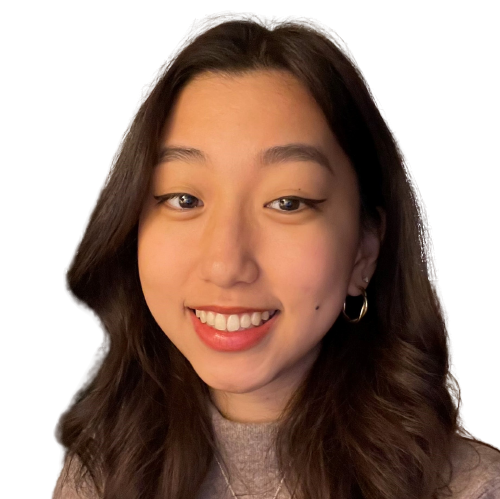
Jennifer Yang is currently a third-year Concurrent Education teacher candidate specializing in both French Studies and English at the Intermediate-Senior level. During the pandemic, Jennifer began volunteering for a virtual education start-up called Fingerprints Inc. which is a mentorship-based program that seeks to create accessible mentorship opportunities for students across Canada. For her second-year practicum, Jennifer continued her work with Fingerprints Inc. as a senior FSL/English mentor and a Research and Development Intern. In these roles, she both mentored students and trained incoming mentors by facilitating shadowing shifts and hosting online workshops on virtual teaching practices. By the end of her practicum, Jennifer also began designing a series of training webinars pertaining to online education safety and curriculum.
Additionally, as a student researcher for USSRF this past summer, she has had the privilege to be working with Dr Ruth Cereceda on furthering the research surrounding virtual experiential learning at the BISC (Bader International Study Centre). She is passionate about student-centred pedagogy and consequently, developing skills/strategies to ameliorate the levels of student learning awareness in both virtual and in-person classrooms. In the next coming months, she will be continuing this research alongside Dr Cereceda with intentions of more profoundly exploring and making sense of student self-awareness in regards to ELOs (Experiential Learning Opportunities).
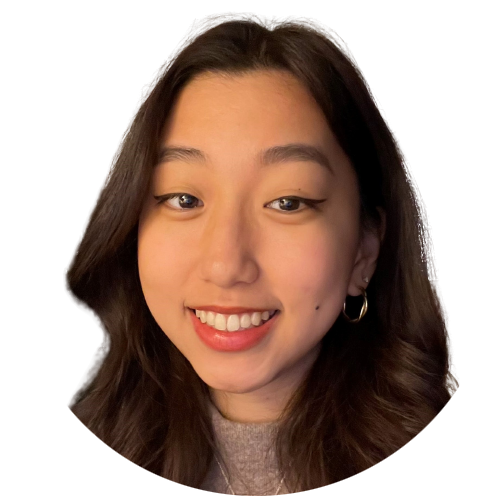
JENNIFER YANG

Jennifer Yang is currently a third-year Concurrent Education teacher candidate specializing in both French Studies and English at the Intermediate-Senior level. During the pandemic, Jennifer began volunteering for a virtual education start-up called Fingerprints Inc. which is a mentorship-based program that seeks to create accessible mentorship opportunities for students across Canada. For her second-year practicum, Jennifer continued her work with Fingerprints Inc. as a senior FSL/English mentor and a Research and Development Intern. In these roles, she both mentored students and trained incoming mentors by facilitating shadowing shifts and hosting online workshops on virtual teaching practices. By the end of her practicum, Jennifer also began designing a series of training webinars pertaining to online education safety and curriculum.
Additionally, as a student researcher for USSRF this past summer, she has had the privilege to be working with Dr Ruth Cereceda on furthering the research surrounding virtual experiential learning at the BISC (Bader International Study Centre). She is passionate about student-centred pedagogy and consequently, developing skills/strategies to ameliorate the levels of student learning awareness in both virtual and in-person classrooms. In the next coming months, she will be continuing this research alongside Dr Cereceda with intentions of more profoundly exploring and making sense of student self-awareness in regards to ELOs (Experiential Learning Opportunities).
